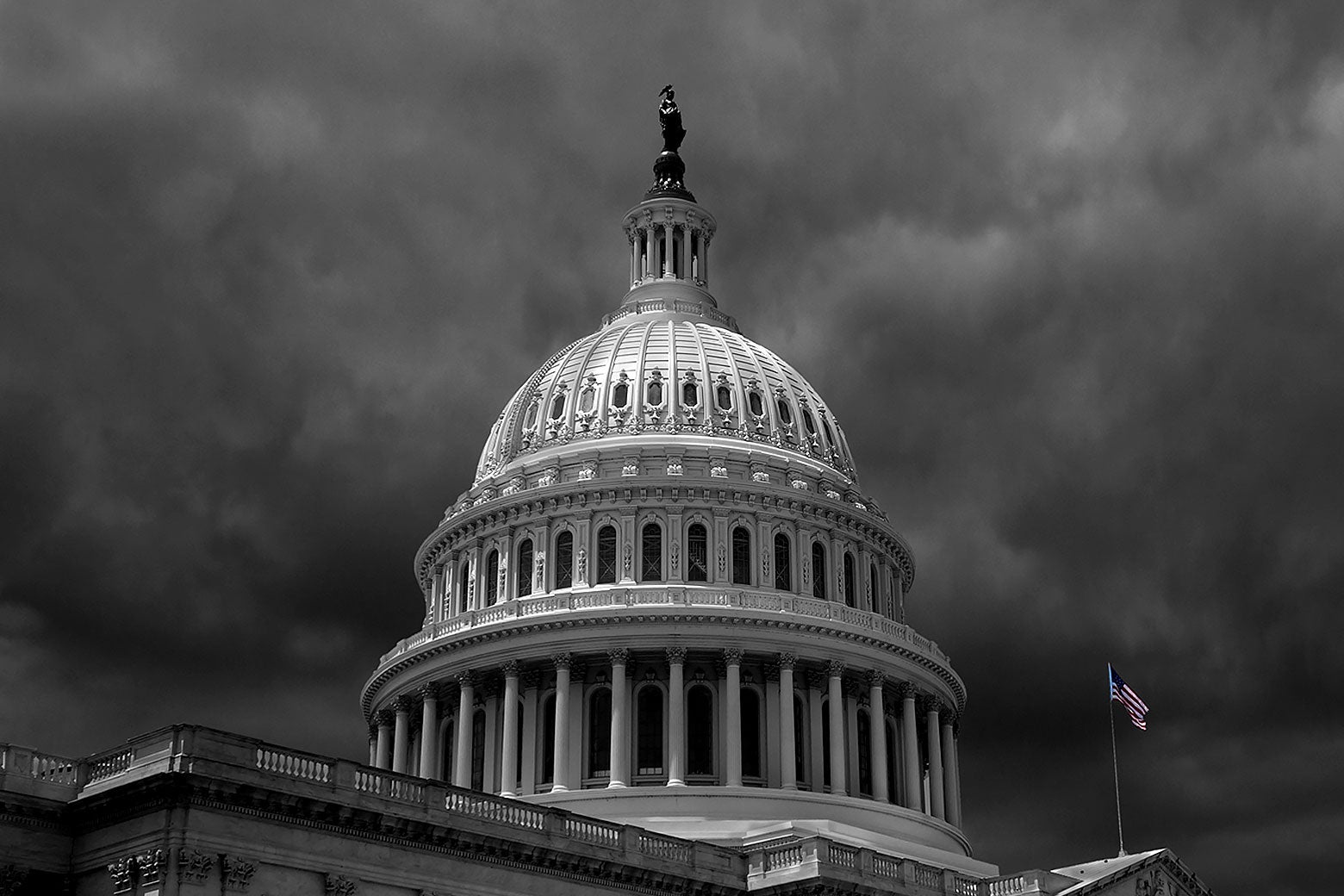He’s already clearly showing us what he wants to do.

Sign up for the Slatest to get the most insightful analysis, criticism, and advice out there, delivered to your inbox daily.
The “nonprofit killer” bill is alive again.
House Republicans’ draft budget bill included a clause that would allow President Donald Trump’s Treasury Department to strip the tax-exempt status of any nonprofit it deems a “terrorist-supporting organization.”
If that sounds familiar, it’s because similar legislation came before the House last year (after earlier iterations) as HR 9495, the “Stop Terror-Financing and Tax Penalties on American Hostages Act.” Under that legislation, the treasury secretary could deem any nongovernmental organization to be “terrorist supporting,” and, if the group could not prove that they weren’t in 90 days, they could be designated a terrorist-supporting group and have their tax-exempt status revoked. Defenders of the law will say that this isn’t politically motivated; the NGO would have met the definition of supporting terrorism. Critics, however, note that this language can easily be politically weaponized by, say, a treasury secretary serving an administration interested in executive overreach. (It is, incidentally, already illegal for NGOs to support terrorism; the difference is that we do not, at present, leave it to the treasury secretary to say so.)
Last year, I warned that this legislation could be used by an administration interested in going after civil society by manipulating the language of national security. We could, if we wanted, look across the ocean to see how similar legislation is being used. As it happens, this week, Hungarian Prime Minister Viktor Orbán’s Fidesz party submitted a bill to parliament that would allow the country’s Sovereignty Protection Office to blacklist organizations if they receive foreign funding, should that funding be deemed a threat to national security. In practice, this could include grants from the European Union. Critics have warned that the bill seems similar to a “foreign agent” law passed over a decade ago in Russia that was used to crack down on NGOs.
This year, we do not need to imagine attacks on NGOs generally and their tax-exempt status specifically as a scary hypothetical. It’s currently happening without this legislation. The president has repeatedly, in addition to freezing federal funds, threatened to revoke Harvard’s tax-exempt status for not ceding to demands, including audits of various departments and changes to university hiring practices, by the administration that would curb the institution’s academic freedom. The administration says that these steps are necessary to fight antisemitism; per a new poll conducted by GBAO Strategies, roughly half of American Jews say funding cuts to universities actually increase antisemitism, while 64 percent disagree with the approach taken by the president to curb antisemitism. (Per the same poll, roughly half of American Jews believe the president himself is an antisemite.)
Tax-exempt status is already being used to try to make what is arguably the country’s most prominent institute of higher education fall in line. The clause in the budget bill, if passed, could make it easier for the administration to punish political opponents, better greasing the slippery slope down out of democracy.
In fairness, sort of, to the president, it isn’t only the White House that has used threats around funding since Trump came back to power. For example, in March, Jewish Insider reported that the House Judiciary Committee and House Foreign Affairs Committee were jointly investigating whether organizations that received federal funding during the Biden administration used those grants “to target Israeli Prime Minister Benjamin Netanyahu’s political standing during the 2023 judicial reform protests.” Jewish Insider reported that letters were sent “to the Jewish Communal Fund, Middle East Dialogue Network, Movement for Quality Government in Israel, PEF Israel Endowment Funds, Rockefeller Philanthropy Advisors and Blue and White Future.” The letters accused the groups of “sending funds to the groups for the purpose of ‘attempting to undermine Israel’s democratically elected government,’ which the lawmakers describe as an attack on civil liberties and potentially criminal.”
In the name of protecting its “sovereignty,” Hungary is poised to go after those who have taken something as banal as an EU grant. And we are already seeing here, in this country, how the language of national security and fighting terrorism is politically malleable and being used to go after students who are engaged in pro-Palestinian protests or who penned an op-ed criticizing Israel. The government’s case against green-card holder Mahmoud Khalil, who led pro-Palestinian protests at Columbia as a graduate student last year, is that his “current or expected beliefs, statements or associations” were against foreign policy interests. What would stop that same logic from being extended to any number of NGOs? That their expected actions are considered unfriendly to U.S. national interests as defined by this administration? Challenges in court might slow things down, but perhaps not as much as this being law would speed things up.
And lest one, for some reason, soothe oneself by saying that this will only (“only”) impact those engaged on issues related to Israel, Palestine, and antisemitism, the NGO sector itself knows that this is not true: Last month, there were reports that Trump was considering signing an executive order that would strip the tax-exempt status of environmental groups.
That executive order has not yet been signed. Perhaps it never will be. Perhaps members of Congress will provide legislative pretext to cut NGOs specifically—and civil society more generally—off at the knees, telling themselves they are doing so to make the country safer. In actuality, they’ll be weakening one of the great checks against the actual threat—emboldening the real danger that is sitting, and amassing further power, within.
Sign up for Slate's evening newsletter.









 English (US) ·
English (US) ·